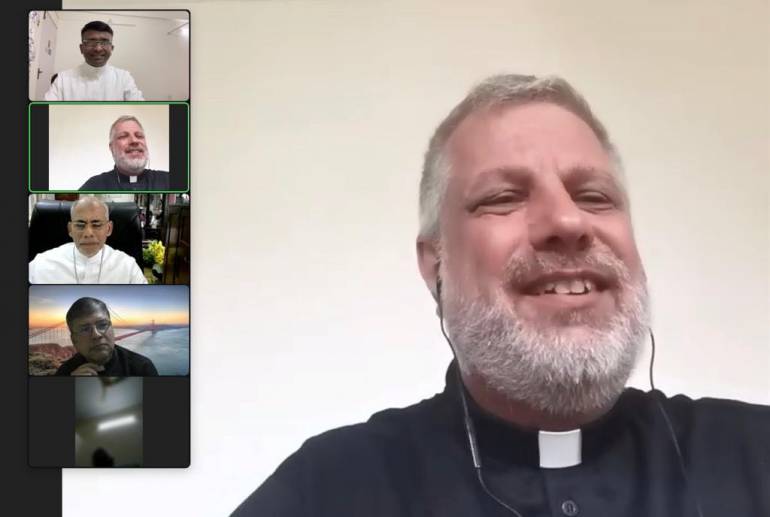Conference of Catholic Bishops of India reflects on working document of forthcoming Synod

Instrumentum Laboris, the working document for the XVI Ordinary Synod Assembly (First Session), will be a tool for reflection and action, says Jesuit Father Giacomo Costa, the Consultor of the Synod General Secretariat.
Father Costa was the guest of honor in the online panel discussion, arranged by the Conference of Catholic Bishops of India (CCBI) Synod Desk and the CCBI Commission for Theology and Doctrine on August 16.
The CCBI is the national association of India’s Latin rite bishops.
"We are all authors of Instrumentum Laboris for the XVI Ordinary Synod Assembly. All our voices have a place in the document," said Father Costa.
An official document from the Vatican known as an instrumentum laboris (Latin for "working instrument") is used during a General Assembly of the Synod of Bishops.
The two-part General Assembly of Bishops will take place in Rome in October 2023 and October 2024.
Cardinal Filipe Neri Ferrão, Archbishop of Goa and Daman and President of the CCBI presided over the panel discussion.
Citing Pope Francis, who says that it is precisely this path of synodality that God expects of the Church of the Third Millennium, Cardinal Ferrão said that the Conference has already initiated a strategic planning process to discern and identify the paths that the Spirit wants the church to take.
"The Document is silent about the following: the influence of Pentecostal movements on the Catholic faithful; the lack of catechesis and pastoral accompaniment for the adults; and the digital media, which offer new and creative space for evangelization," said Darryl Peter Rebeiro, formerly a Eucharistic Minister in Oman.
He, currently a parishioner of the Parish of Ascension Church, Archdiocese of Bangalore, India, acknowledged that the voices of the lay faithful have found their way to the document.
Rebeiro proposed that a synod monitor consisting of the majority of the lay faithful be established at the parish and diocesan levels in the local church.
The reflection from the perspective of a woman and a nun was shared by Sister Patricia Santos, RJM, a faculty member at Jnana-Deepa Vidyapeeth [‘Jnana’ (wisdom), ‘Deepa’ (light), and Vidyapeeth (college)], a pontifical institute in Pune, the western Indian state of Maharashtra.
"Rather than putting forward concrete claims and assertions, the document and the accompanying worksheets are full of questions for further reflection and discussion," she said.
Bishop Vincent Aind of Bagdogra reflected on Instrumentum Laboris as an ordained minister.
Pointing out the importance given to the office of the bishop in the synodal church, Aind underscored the key questions that the document raises for discussion: "How can we renew and promote the bishop’s ministry from a missionary synodal perspective? What renewal of the vision and exercise of episcopal ministry is needed for a synodal church characterized by co-responsibility? How does the exercise of the episcopal ministry solicit consultation, collaboration, and participation in the decision-making processes of the people of God?"
A few questions that emerged from the floor are: "Will this Synod on Synodality be open to changing a few Canon Laws that are not favoring women's equality? How would we evolve and implement synodal catechesis?"
Fathers Yesu Karunanidhi and Gilbert Dea were in charge of organizing and coordinating the online panel discussion.
Cardinal Oswald Gracias, Archbishop of Bombay, concluded the discussion by invoking God’s blessings on the synodal process. -Santosh Digal
Radio Veritas Asia (RVA), a media platform of the Catholic Church, aims to share Christ. RVA started in 1969 as a continental Catholic radio station to serve Asian countries in their respective local language, thus earning the tag “the Voice of Asian Christianity.” Responding to the emerging context, RVA embraced media platforms to connect with the global Asian audience via its 21 language websites and various social media platforms.













